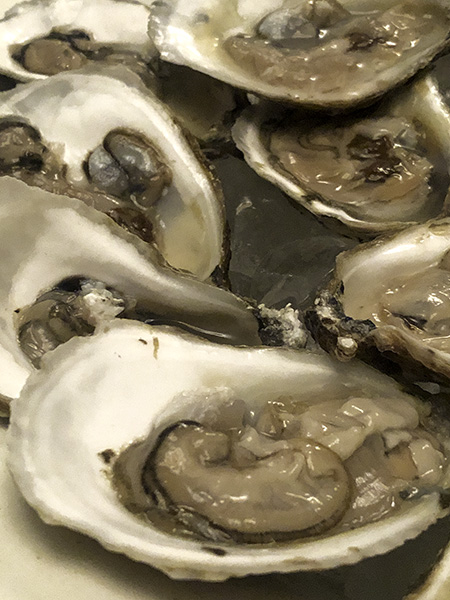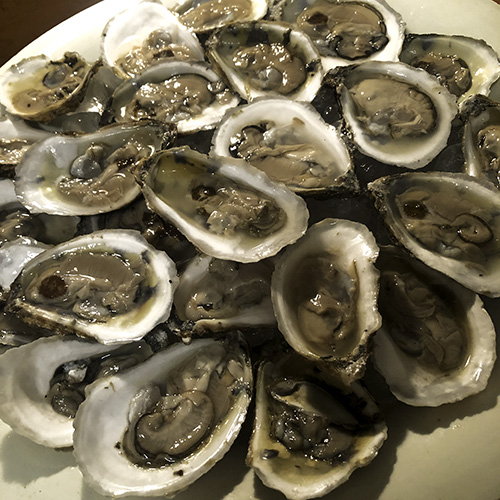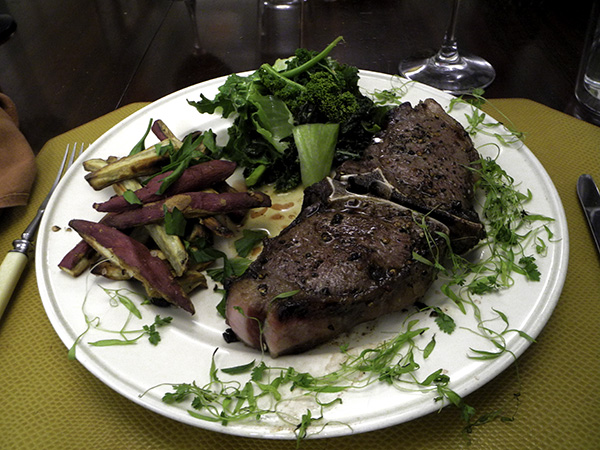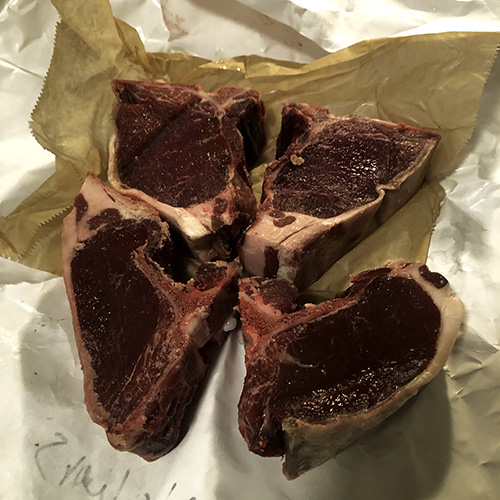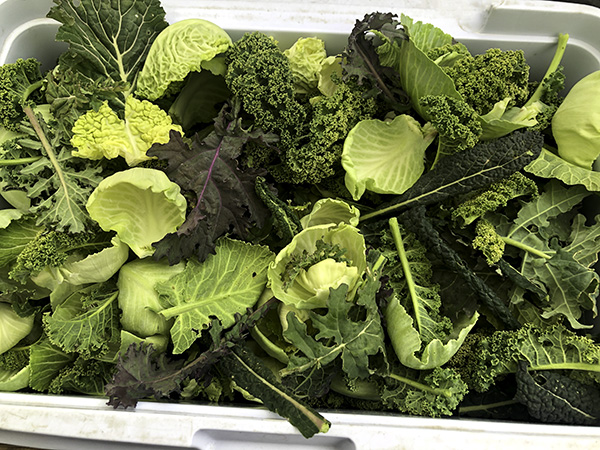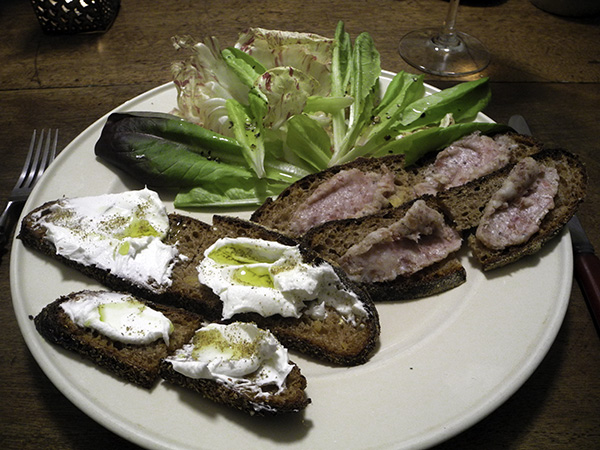
When your 3-hour play started late, but you still need a supper, and then you want to continue the discussion that began when you entered the theater:
- thin slices of dense ‘Homadama’ (wheat, corn, water, maple syrup, salt, slaked lime) from Lost Bread Co., not toasted, because they were both very fresh and very firm, supporting 2 different spreads, a plain water buffalo milk labneh from Riverine Ranch, leaving a shallow depression to receive a bit of a very good Greek olive oil (Renieris Estate ‘Divina’ (Koroneiki varietal), then sprinkled with a few pinches of dried fenugreek from Bombay Emerald Chutney Company (purchased at the Saturday Chelsea Farmers Market); and an Umbrian-style ciauscolo, or spreadable salami made by Rico and Jill of Walnut Hill Farm in Pawlet, Vermont
- leaves from a small purple and green head of leaf lettuce from Fledging Crow Vegetables and a small head of Radicchio Variegato di Castelfranco from Campo Rosso Farm, dressed with the same Greek olive oil, local P.E. & D.D. Seafood sea salt, freshly ground black pepper, and a squeeze of organic California lemon from Chelsea Whole Foods Market
- the wine was an Italian (Veneto/Bardolini) rosé, Bardolino Chiaretto, Corte Sermana 2018, from Astor Wines
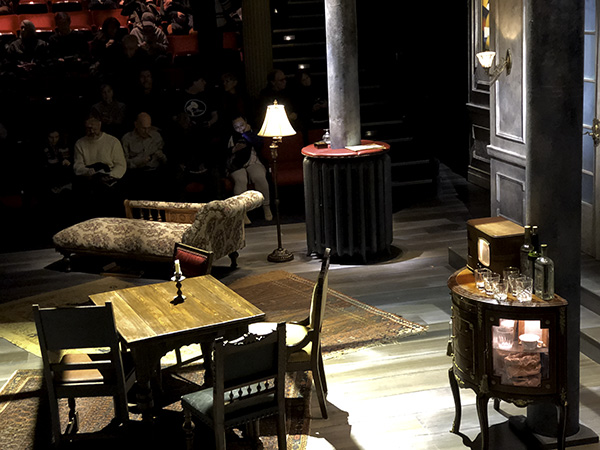
- because the performance we had come from was a that of Tony Kushner’s 1985 play, ‘A Bright Room Called Day’, set in Berlin in 1932-1933, the music we chose was pretty much in tune: it was ‘Leipzig Symphony‘, by one of the German composers most closely associated with resistance to the Nazis, Hanns Eisler; banned in 1933, the composer and his collaborator Bertolt Brecht went into exile; Eisler was eventually able to emigrate to the United States with a permanent visa in 1938, joining Brecht in Los Angeles in 1942, but, because he remained so deeply committed to everything most hated by the National Socialist regime, in 1948 Eisler and his wife were literally thrown out of the U.S. as well; they were reunited with Brecht in East Berlin, where he composed the magnificent national anthem of the German Democratic Republic, among many other works, many for theater and film, and both he and Brecht were celebrated as heroes, until the day they died, and beyond [Eisler’s ‘Leipzig Symphony’, unfinished when the composer died in 1962, was completed by composer Thilo Medek; the performance we heard was by Jürgen Bruns conducting the MDR Leipzig Radio Symphony Orchestra (the radio orchestra of Mitteldeutscher Rundfunk), the oldest German radio orchestra, based in Leipzig, where it was founded in 1923]
[the second image is of a large detail of the set, before the play begins, for ‘A Bright Room Called Day’ at The Public Theater, where it continues through December 22]
